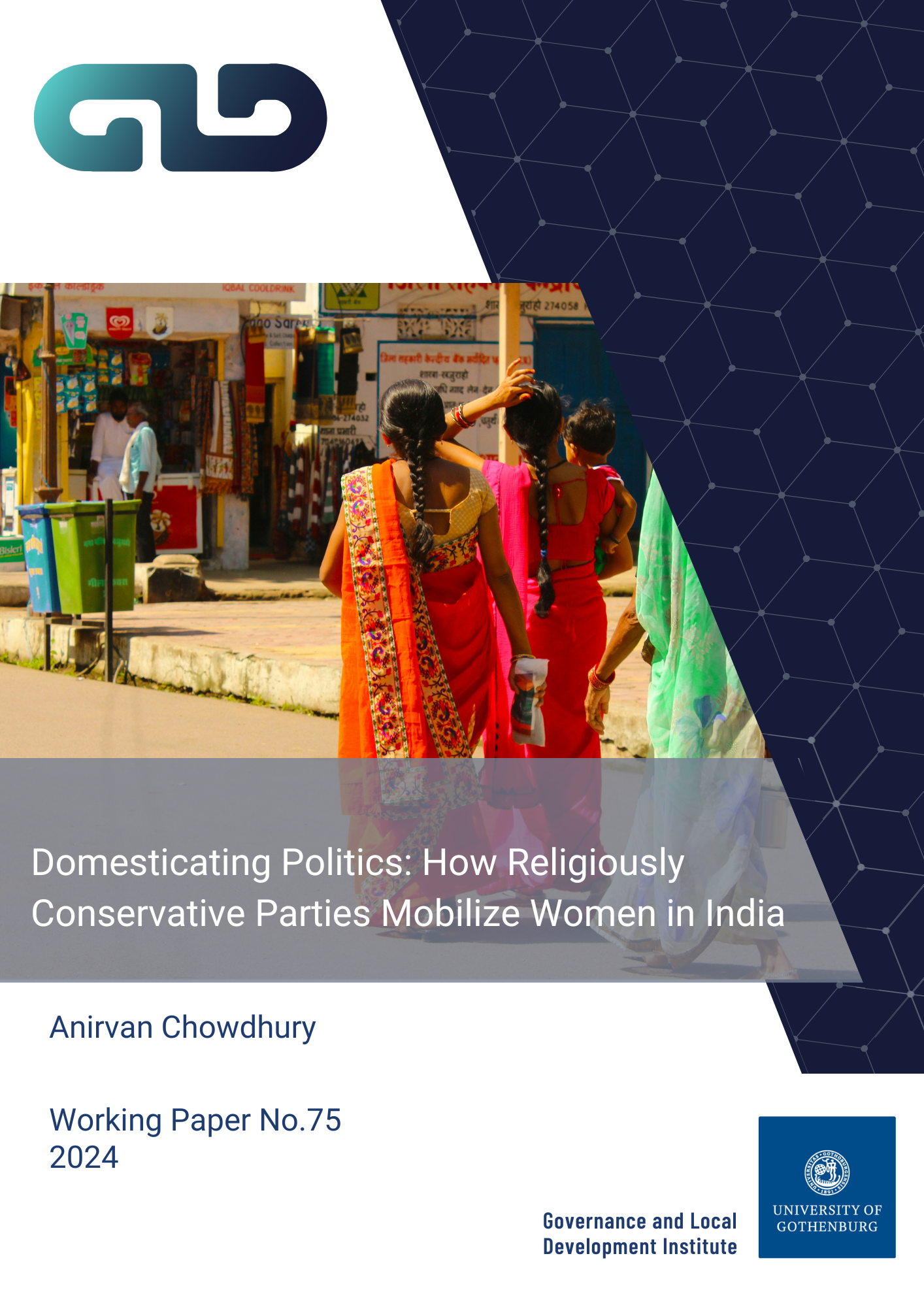No.75 Domesticating Politics: How Religiously Conservative Parties Mobilize Women in India
Anirvan Chowdhury
Abstract
How do religiously conservative parties mobilize women, despite espousing traditional gender norms relegating them to the private sphere? I develop a theory of norm-compliant mobilization to explain this paradox. Grounded in the context of patriarchal societies, this theory proposes that framing participation as aligned with women’s traditional roles can, perhaps counter-intuitively, facilitate their political entry. Drawing on the case of India, where women increasingly mobilize for a religiously conservative party, I employ qualitative research and ethnographically-informed experiments to demonstrate how framing politics as seva, a descriptively gendered norm of selfless service, publicly validates women’s domestic roles, downplaying political engagement as potentially transgressive. This norm-compliant framing circumvents challenges to patriarchal standards and reduces coordination costs for parties by aligning citizens’ expectations of increased overall participation. These insights inform our understanding of women’s political inclusion, partisan mobilization, and the role of traditional norms in shaping political behavior and sustaining conservative movements globally.
Keywords: gender, political participation, religion, social norms, conservatism, India
